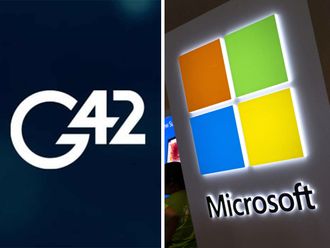Dubai: Middle East fund managers expect to increase their allocations to bonds over the next three months and favour Saudi Arabia over the UAE among equity markets, a monthly Reuters poll found.
The poll of 13 leading fund managers, conducted over the past week, found 46 per cent of managers plan to move more excess cash into fixed income and 8 per cent to reduce their holdings.
That is the second most positive balance towards bonds since the poll was launched in September 2013, and is a shift from last month, when 8 per cent said they would lift allocations and 15 per cent would cut them. By lifting dollar interest rates in mid-March, the US Federal Reserve’s made the income from bonds more appealing.
More US rate hikes are expected this year, which could hurt capital values of bonds but that is outweighed by other factors.
Liquidity in the Gulf bond market has been improving as governments have increased issuance; Saudi Arabia is preparing for a US dollar sukuk issue that could total as much as $10 billion (Dh36.7 billion). The ability to trade more easily has made bonds more attractive to institutional investors.
Also, some managers who had been overweight in cash are parking it in interest-bearing securities, earning between 2.2 and 2.8 per cent for a high-rated sovereign note, until first-quarter earnings from Middle Eastern companies set the tone for equity markets in coming months.
“As we approach Ramadan and the summer holidays — which typically see low volumes in equity markets — the above-average cash position is being deployed in fixed income and to defensive, low-beta stocks,” said Talal Samhouri, head of asset management at Amwal Qatar.
Equities
Fund managers are still positive on balance towards regional equities but have become slightly less so, the survey shows.
Thirty-one per cent plan to raise allocations and none to reduce them, compared with figures of 62 per cent and zero last month.
Gulf stock markets have underperformed emerging markets in general in the last few months, partly because of expectations for more austerity steps by Gulf governments, and it is not clear when this trend will end.
“I believe markets will continue to perform in the same trading range as March 2017 until first quarter results are announced, and a clearer direction of companies’ financial performance for 2017 becomes evident,” NBAD Securities head, Mohammad Ali Yasin, said.
Within a regional equities portfolio, managers prefer Saudi Arabia by a considerable margin, with 62 per cent planning to increase their allocations towards Saudi stocks and none to cut them, levels unchanged from last month.
Emerging market index
Last week, the Saudi exchange said it would extend the period for settling trades and introduce short-selling on April 23, reforms that may help the market join international equity indexes. MSCI will decide in June whether to review Saudi Arabia for possible inclusion in its emerging market index, while FTSE will decide in September whether on an upgrade.
“We expect the upcoming MSCI and FTSE reviews of Saudi to draw significant foreign inflows over the next two years,” Waha Capital’s managing director of capital markets, Mohamed Eljamal, said.
Kuwait’s stock market is up 20 per cent in heavy volume since the start of this year, far outperforming the rest of the region. But while some managers cite the Kuwaiti government’s strong financial position, which has allowed it to avoid most austerity steps, others think the rise is excessive.
Twenty-three per cent of managers expect to raise their Kuwaiti equity allocations and the same proportion to reduce them.
“We do expect some of the Kuwaiti outperformance to unwind,” Al Rayan Investment’s senior director of asset management, Akber Khan, said.












